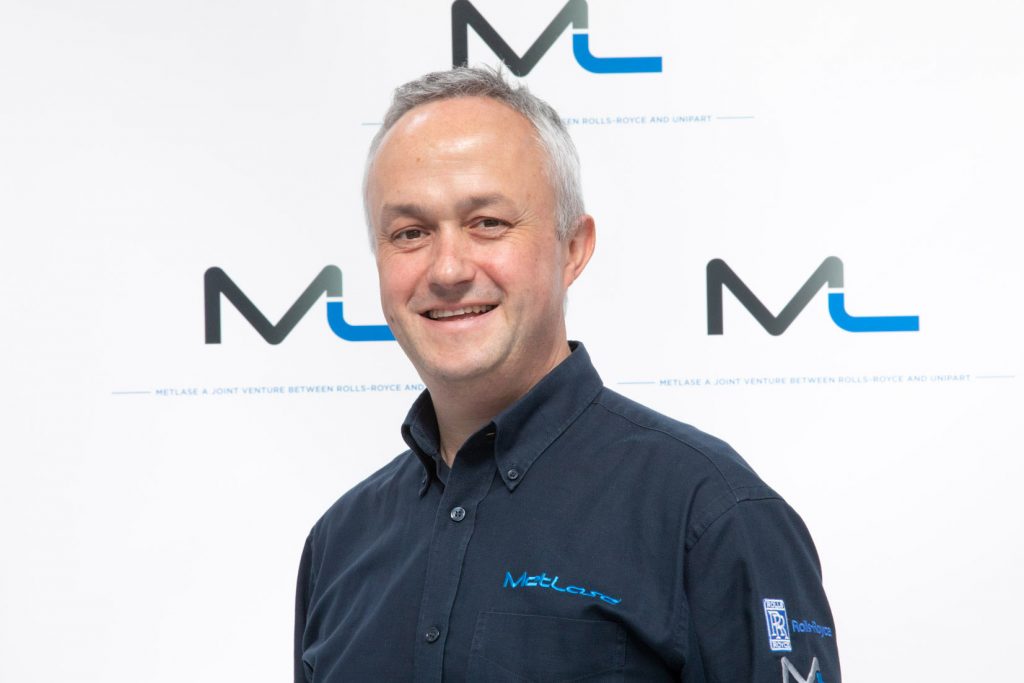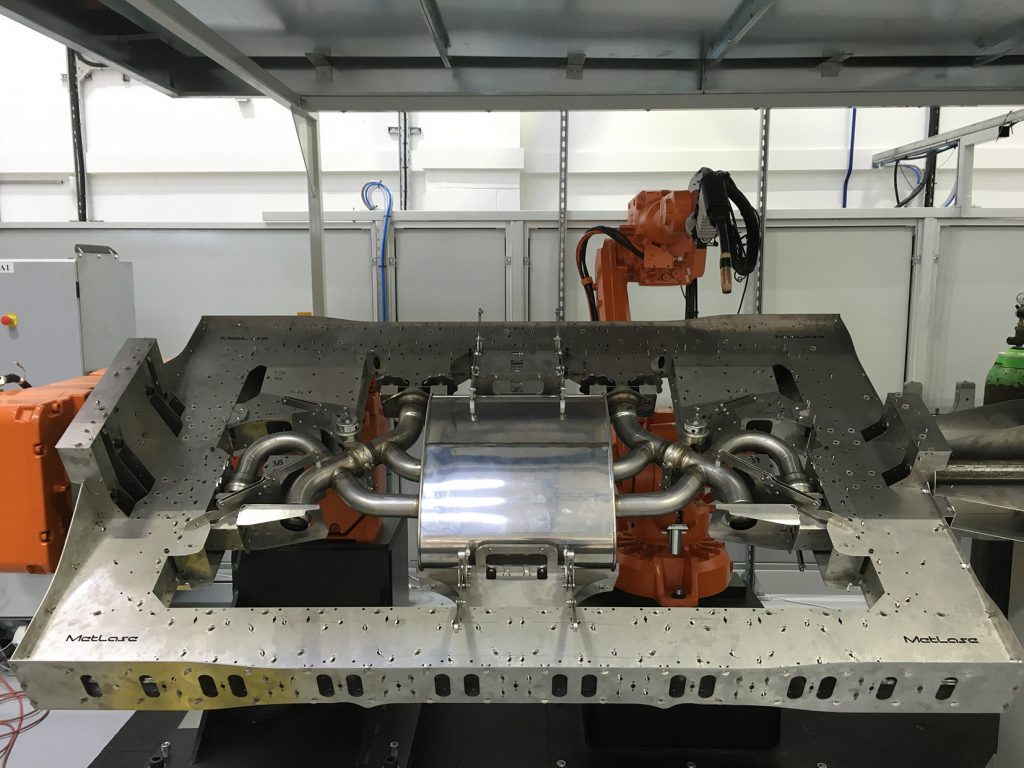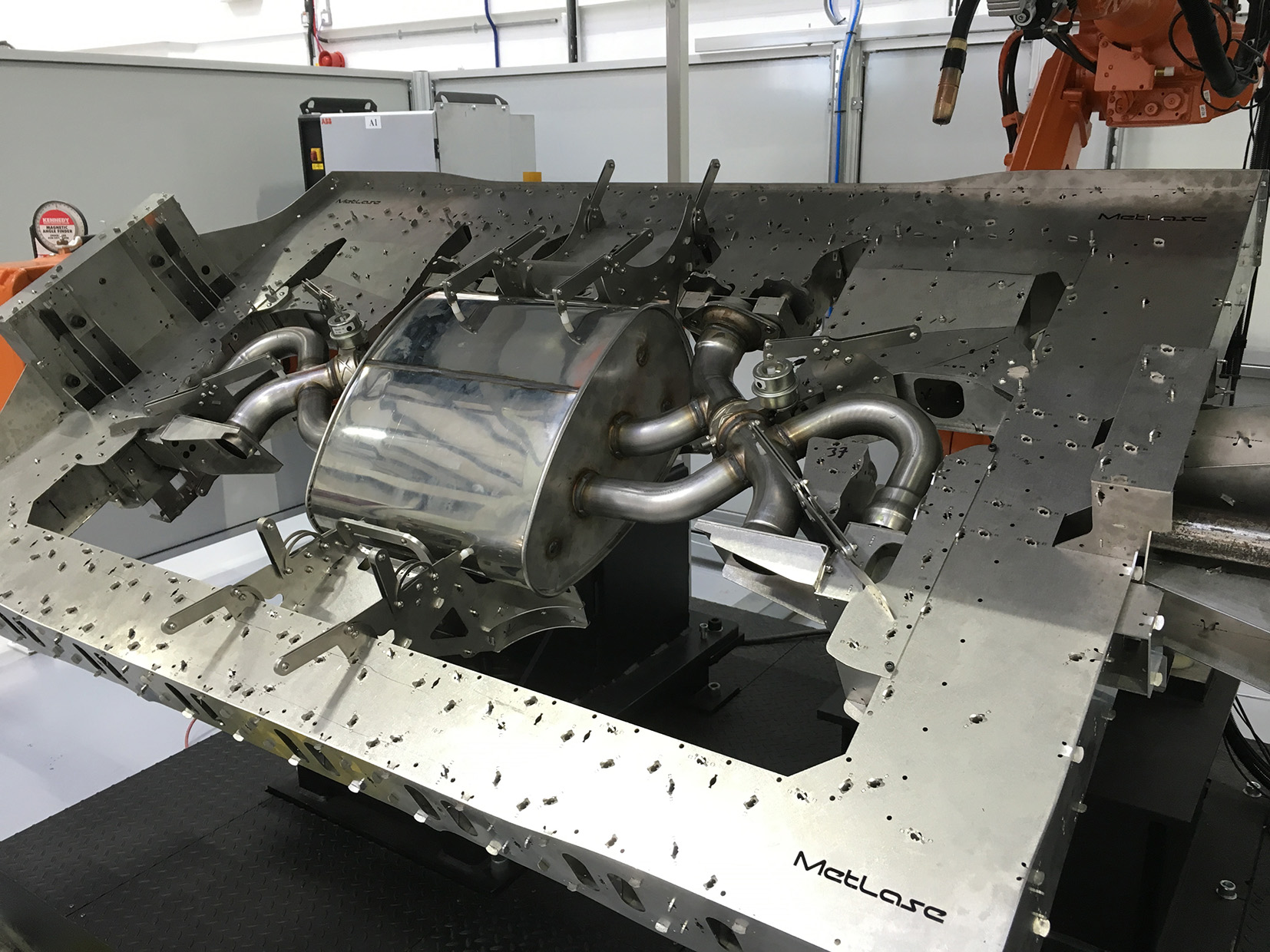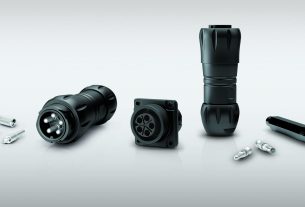One of the UK’s leading engineering specialists has just completed its largest ever rapid tooling project as demand for shorter lead times intensifies.
MetLase, which is a joint venture between Rolls-Royce and Unipart, has designed and manufactured a stainless steel tool measuring 4 metres in diameter and capable of holding a component 2 metres tall.
The company met the challenge of the major aerospace customer head-on, with manufacturing sign-off and delivery completed in just one month…150 days quicker than the client would have previously expected.
It’s just one in a long list of notable successes from the Yorkshire-based firm, who is rewriting the rule book when it comes to rapid tooling development by harnessing the design skills of a 25-strong engineering team and unique joining solutions that replace the traditional welding process.
“Typical conventional tooling approaches often take a massive block of material and then you machine away the bits you don’t want to form the tool,” explained Richard Gould, Business Development Manager at MetLase.
“We take a different stance, basically laser cutting sheet metal, usually stainless steel or titanium, into lots of different elements. These are then joined together to form the tool using our very own manufacturing technique, removing the need to weld them together and the distortion that usually comes with this approach.”
He continued: “Everything is controlled ‘in-house’ at MetLase and that’s another big benefit as we control the entire process. We have all the technology we require, we have the engineering talent and we are always adding to our standardised feature library and parametric modelling system that will allow us to instantly access formula for creating tools for specific applications.
“All of this means we are able to work with customers to reduce lead times to weeks if not days, meaning the client has more time to iterate their component design before signing off the tooling.
“As well as the time saving, our service can also help mitigate massive financial costs associated with last minute changes.”
MetLase, which employs 30 people at its AMP Technology Centre base in Rotherham, has already completed a number of high-profile projects using its rapid tooling development.
This includes creating a pipe fixture in less than 24 hours, using parametric modelling to modify a composite wing fixture for F1 in just 12 hours and responding quickly to a premium British automotive manufacturer’s styling department change that saw it accommodate quad pipes instead of twin.
Interest has come from automotive and aerospace initially, but the firm is now seeing other sectors, such as construction and medical, exploring rapid tooling and the benefits that can give them.
Richard concluded: “The MetLase approach means the design engineer you first talk to will actually oversee the entire project, often completing the manufacturing of the tool themselves. Unlike traditional processes, we can also test ideas out relatively quickly by developing prototype tooling at little cost before agreeing full production.
“It can also be a crucial lifeline for companies looking to ramp up production or create new manufacturing cells quickly. Our rapid tooling service means we can take that headache away from them, leaving them free to concentrate on other business critical activities safe in the knowledge their tool or tools will arrive weeks ahead of when they were initially expecting.”
MetLase will be hosting the latest in a series of best practice webinars on Thursday at 3pm, this time covering in-line testing and validation for technical manufacturing.

Richard Gould 
MetLase Rapid Tooling
Experts will explore how advances in digital quality checking will improve and shorten the quality checks using systematic, standardised techniques.





